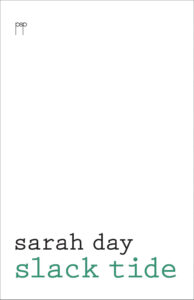 These poems are rich in nature-language like thorax, legs, forest, ribs, and peach pits. So it’s fitting that this book reminds me of a tree with roots ensnared in the earth. Yet, there is also an edge of brisk oddity that brings to mind the uppermost branches of a tree, swung wildly about by a strong wind. Examples of this oddity include, what kind of metal sleep you take? and I used to want to be a dinner plate so badly.
These poems are rich in nature-language like thorax, legs, forest, ribs, and peach pits. So it’s fitting that this book reminds me of a tree with roots ensnared in the earth. Yet, there is also an edge of brisk oddity that brings to mind the uppermost branches of a tree, swung wildly about by a strong wind. Examples of this oddity include, what kind of metal sleep you take? and I used to want to be a dinner plate so badly.
Life’s Battle Sites: On Xochitl-Julisa Bermejo’s Incantations: Love Poems for Battle Sites
 The San Gabriel Mission is just one of the many battle sites that make up Bermejo’s new poetry collection Incantation: Love Poems for Battle Sites, exploring the internal and external concerns about the current state of fear and chaos in America and how past unresolved fear and chaos can still haunt us.
The San Gabriel Mission is just one of the many battle sites that make up Bermejo’s new poetry collection Incantation: Love Poems for Battle Sites, exploring the internal and external concerns about the current state of fear and chaos in America and how past unresolved fear and chaos can still haunt us.
A review of Tom Lake by Ann Patchett
 Chekhov, however, is writing about class changes in the Russia of his day, so Our Town, an American work, seems more likely to be an influence on Patchett than The Cherry Orchard” is. Like Thornton Wilder, Ann Patchett shows the value of rural life, family and community, but, by presenting Lara’s earlier life, she acknowledges the significance of the wider world in making her knowledgeable and open-minded. Tom Lake is not as parochial as Our Town.
Chekhov, however, is writing about class changes in the Russia of his day, so Our Town, an American work, seems more likely to be an influence on Patchett than The Cherry Orchard” is. Like Thornton Wilder, Ann Patchett shows the value of rural life, family and community, but, by presenting Lara’s earlier life, she acknowledges the significance of the wider world in making her knowledgeable and open-minded. Tom Lake is not as parochial as Our Town.
A review of Boat Girl by Melanie Neale
 From the day she was born Melanie was certain how fell about the boat. Melanie knew she “fell in love with the 47’ fiberglass sailboat the day I came aboard from the hospital” (Neale 1). She continued to share a deep connection with the boat as she aged, she spent most of her life on it, the bond and memories that came from those experiences stayed with her till the end of the memoir.
From the day she was born Melanie was certain how fell about the boat. Melanie knew she “fell in love with the 47’ fiberglass sailboat the day I came aboard from the hospital” (Neale 1). She continued to share a deep connection with the boat as she aged, she spent most of her life on it, the bond and memories that came from those experiences stayed with her till the end of the memoir.
A review of If Some God Shakes Your House by Jennifer Franklin
 There is so much pain in this collection that it is hard to bear. What makes the reader continue is the poet’s ability to encompass so much in each poem. Whether it’s the varied content, as illustrated in the poems described above, or the raw emotion she conveys as she stares directly at life and its inevitable end, her work must be read.
There is so much pain in this collection that it is hard to bear. What makes the reader continue is the poet’s ability to encompass so much in each poem. Whether it’s the varied content, as illustrated in the poems described above, or the raw emotion she conveys as she stares directly at life and its inevitable end, her work must be read.
A Review of The Only Living Girl on Earth by Charles Yu

Eat, Pray, Love: Panic, Stress, Parent: A review of For You I Would Make an Exception by Steven Belletto
 The result is a weird but enjoyable romp that contains a (perhaps unintentional) commentary on American capitalism, neoimperialism, and how the wants of a white girl self-possessed are somehow paramount everywhere while simultaneously highlighting the simple joy that comes from sharing life with others.
The result is a weird but enjoyable romp that contains a (perhaps unintentional) commentary on American capitalism, neoimperialism, and how the wants of a white girl self-possessed are somehow paramount everywhere while simultaneously highlighting the simple joy that comes from sharing life with others.
An Interview with Author David Dvorkin
 “I’m more invigorated artistically now than I have been for decades,” says author David Dvorkin in his soft, lilting English accent. We’re sitting in a quaint coffee shop discussing his new novel, Cage of Bone. The novel, he explains, is a crime thriller with telepathy, psychological components and a science fiction twist.
“I’m more invigorated artistically now than I have been for decades,” says author David Dvorkin in his soft, lilting English accent. We’re sitting in a quaint coffee shop discussing his new novel, Cage of Bone. The novel, he explains, is a crime thriller with telepathy, psychological components and a science fiction twist.
A review of Helens: Not Necessarily About Sex by by Matthew Louis Kalash
 This is writing, literary fiction, at its most realized potential. In the title story, ‘Helens,’ an academic (no doubt a même of the author himself), who is a college history instructor, sets the stage by discussing, at fascinating length, the Trojan War. Paris and Menelaus and Helen.
This is writing, literary fiction, at its most realized potential. In the title story, ‘Helens,’ an academic (no doubt a même of the author himself), who is a college history instructor, sets the stage by discussing, at fascinating length, the Trojan War. Paris and Menelaus and Helen.
A review of Slack Tide by Sarah Day
 Day observes the world, finds connections between things, explores invisible currents that influence life like environmental issues, the social, and the geo-political. Many of her poems highlight the incongruences that we face each day like observing the beauty of our planet and at the same time its destruction.
Day observes the world, finds connections between things, explores invisible currents that influence life like environmental issues, the social, and the geo-political. Many of her poems highlight the incongruences that we face each day like observing the beauty of our planet and at the same time its destruction.